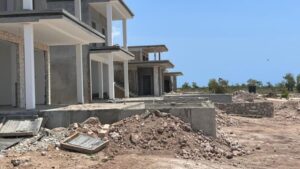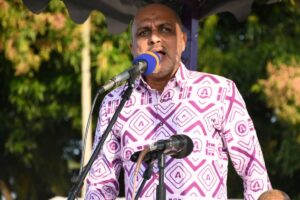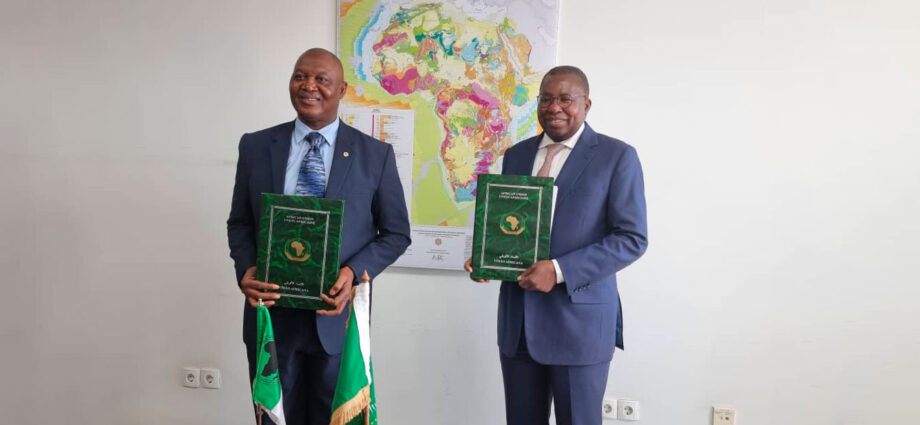The African Union Commission (AUC) and the African Development Bank have signed a grant agreement to implement Phase 1 of the Upstream Project for Digital Market Development in Africa.
The signing ceremony took place on November 17 at AUC Headquarters in Addis Ababa, Ethiopia. The AUC Commissioner for Economic Development, Trade, Tourism, Industry and Minerals, Ambassador Albert M. Muchanga, and the African Development Bank’s Deputy Director General for the East Africa Region, Abul B. Kamara, signed the agreement on behalf of their institutions.
The African Development Bank’s board of directors approved the grant of 7 million Units of Account ($ 9.73 million) in September this year. The project supports the AUC’s implementation of digital economy projects to enhance a continental single digital market. It also supports the implementation of the African Continental Free Trade Area and the Digital Transformation Strategy for Africa.
The project comes as the backdrop of the Covid-19-induced recession that exposed several gaps in the African digital economy ecosystem. It addresses these gaps. Phase 1 runs from 2023 to 2026. It will focus on three main components namely: digital enablers; digital trade and e-commerce adoption; and support actions. Specifically, the project will help strengthen the frameworks (strategic, policy, regulatory and conceptual) and cross-cutting (gender, climate change and resilience) dimensions for the development of Africa’s digital economy.
These frameworks are key substrate to guide the establishment of a single digital market across the African continent by 2030. The project will therefore contribute to the implementation of digital enablers—universal access to broadband infrastructure, sovereign African cloud, African digital market, etc.—e-commerce and digital trade promotion programs for medium, small and micro enterprises and start-ups. It will also help to create a conducive ecosystem for digital trust, skills and African experts’ networks.
Ambassador Muchanga expressed the AUC’s gratitude to the African Development Bank for its support. He said: “The Covid-19 pandemic underscored the importance of digital technologies and the digital economy as a whole, and in that regard, Africa should think big when it comes to digital development, digital economy and the grand opportunities on integration and economic growth.”
Dr. Kamara said the project would support the implementation of the African Development Bank’s High 5 priorities as accelerators to achieve Agenda 2063 targets and the continent’s economic transformation to get The Africa We Want.
He added: “It is important to create employment opportunities for millions of young Africans, which is essential for the stability and prosperity of the continent. The digital transformation of economies offers new opportunities to increase intra-Africa trade and boost economic growth.”
Source: afdb.org
Share this news
This Year’s Most Read News Stories

Shock waves hit Zanzibar’s Real Estate industry
The revocation of British developer Pennyroyal’s leasehold for the construction of Blue Amber Resort by the Revolutionary Government of Zanzibar has sent shock waves in the nascent property market on the Isles.Continue Reading

ACT-Wazalendo calls for withdrawal of mandatory travel insurance in Zanzibar
Starting October 1, all visitors to Zanzibar will be required to purchase a mandatory travel insurance policy costing $44 at the point of entryContinue Reading

Zanzibar terminates land lease offered to British developer
The Revolutionary Government of Zanzibar (SMZ) has terminated a land lease held by British property developer Pennyroyal Limited in Matemwe, the developer has announced.Continue Reading











